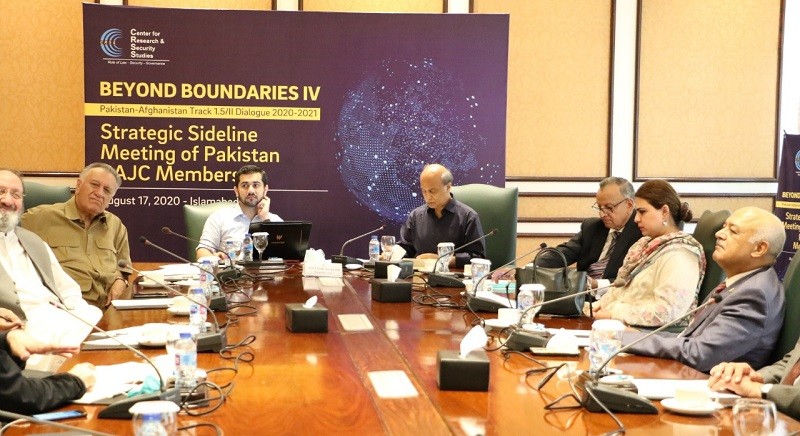By Hamid Khan Wazir
ISLAMABAD, Pakistan: Pakistani experts at a track 1.5/II moot in Islamabad stressed on the urgent formation of a Special Parliamentary Committee on Afghanistan to tackle bilateral issues, particularly transit trade.
The meeting was convened by the Center for Research and Security Studies (CRSS) as part of its ongoing “Beyond Boundaries” initiative to gauge the impact of the newly opened trade routes, developments in the Afghan peace process, and impact on the security situation in both countries.
Experts shed light on the bilateral trade issues, ranging from slow scanning of the containers, to non- availability of trackers, and issues regarding insurance of goods, which has led to the stranding of over 9,000 containers at Karachi port.
Member of National Assembly (MNA) Mehnaz Akber Aziz and Lt. Gen. (retd) Asif Yasin Malik underlined the need to approach and utilize parliamentary channels to effectively address these challenges as a lasting and sustained effort.
Members thus affirmed to reach out to relevant government authorities for the setting up of such a formal mechanism in the near future.
Underlining the need to tackle these issues at the earliest, Ambassador Asif Durrani pointed out Afghanistan’s dependence of trade routes as a point of strength for Pakistan that can be utilized for mutual economic gains.
He cautioned that if the current cumbersome bureaucratic policies are allowed to persist, Pakistan would lose a major chunk of its transit trade potential.
Dr. Shoaib Suddle, former Inspector General (IG) Police and former Federal Tax Ombudsman, recommended complete automation of the transit trade process, thus minimizing human involvement and bureaucratic hurdles, which have become an embarrassment for Pakistan.
Human security expert Ammara Durrani affirmed that the matter was an issue of political economy.
She said that regional economic connectivity should be a clear and present priority for bilateral issues that need urgent resolution and streamlining.
Shedding light on the developments in the Afghan peace process, veteran journalist Tahir Khan, apprised that the Taliban are now more than willing to move forward in the peace process, but internal politics hinder the process in a variety of ways.
Ambassador Ayaz Wazir stressed that achieving peace in Afghanistan is in the interests of Pakistan now more than ever or else the prolonged Afghan conflict and its potential spillover effects would endanger any prospects of regional economic connectivity and stability.
MNA Mehnaz Akber Aziz also stressed on reclaiming Pakistan’s relevance in the Afghan peace process as a major stakeholder, adding that the focus should be on a win-win situation.
Experts participating in the strategic meeting included MNA Mehnaz Akber Aziz; Dr. Shoaib Suddle, Former IG Police and former Federal Tax Ombudsman; Lt. Gen. (retd) Asif Yasin Malik, Former Defense Secretary; Former Ambassador Ayaz Wazir; Former Ambassador Qazi Humayun; Former Ambassador Asif Durrani; Former Ambassador Mian Sanaullah; Ammara Durrani, public policy and human security expert, and Tahir Khan, veteran journalist and anchorperson GTV News.




